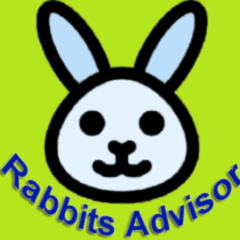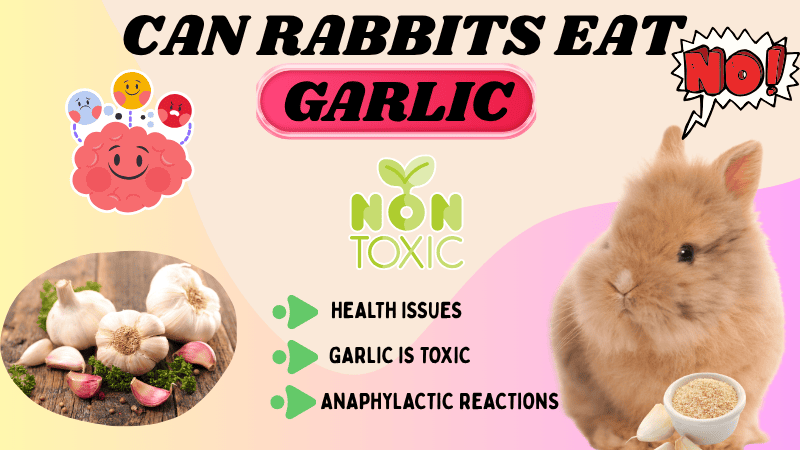Some people are finding the perfect content regarding ‘Can Rabbits Eat Corn?’ then they will get few controversial out there. But, now here completely stop it; because here our pet’s expert will share you helpful information about ‘Can Rabbits Eat Corn?’ Yes or Not!
So, keep reading this full article. You have got all the answers to your questions regarding about corn for rabbits.
Can I Give Corn to Rabbits?
Yes! You can give corn to rabbits, but it should be in moderation and as part of a balanced diet. Corn is high in carbohydrates and can be quite starchy. So, it should not be the main component of a rabbit’s diet. It can be best to offer corn as an occasional treat beyond of the staple food.
Rabbits require a diet that primarily consists of hay, fresh vegetables, and a small amount of pellets. Offering a variety of vegetables in small portions is ideal to ensure they get a balanced diet.
Do Rabbits Like Corn?
Some bunnies may enjoy eating corn, as it can be tasty and appealing due to its sweetness. However, it’s essential to remember that just because rabbits may enjoy the taste of corn doesn’t mean it’s the best option for their overall health.

While corn can be given as an occasional treat, it should not be a significant part of a rabbit’s diet. Rabbits have delicate digestive systems that require a high-fiber, low-carbohydrate diet primarily consisting of hay, fresh vegetables, and a small amount of pellets.
If you feed too much corn to rabbits that can lead to many health problems like as digestive issues, obesity, and so on.
Corn Nutrition Stats and Facts
Here, we are going to show you the nutrition stats and facts for corn, as per our pet’s advisor:
Also Read: Can Rabbits Eat Broccoli? Comprehensive Guide with FAQs
- One medium-sized ear of corn serves the 88 calories, 1.4g of fat, 19g of carbohydrates, and 3.3g of protein. It is a best source of vitamin B1, vitamin C, E, and A, fiber, and potassium.
- Corn contains about 19 grams of carbohydrates in one ear, with 2 grams of fiber and 6.4 grams of natural sugars.
- Corn is a decent source of protein with just over 3 grams per ear and is higher in protein compared to most vegetables due to being a whole grain.
- Corn is naturally low in fat, with 1.4 grams per medium-sized ear, primarily from heart-healthy monounsaturated or polyunsaturated fats.
- Corn also offers the various essential nutrients such as potassium, iron, phosphorus, zinc, magnesium, vitamins (C, E, and A).
What Are Reasons? Corn is Not Safe for Bunnies Including (Fresh, Dried, or Cooked)
While rabbits can eat corn, there are several reasons why it’s not considered an ideal or safe food for them, whether it’s fresh, dried, or cooked:
Also Read: Can Rabbits Eat Bread? Is it Safe or Not
High Carbohydrate Content: Corn is relatively high in carbohydrates compared to other vegetables. So, this can lead to weight gain and obesity in rabbits if consumed in large quantities.
Low Fiber Content: Corn lacks the high fiber content that is essential for maintaining healthy digestion in rabbits. A diet low in fiber can lead to gastrointestinal stasis and other digestive issues.
Risk of Digestive Upset: Rabbits have sensitive digestive systems, and sudden changes or introduction of new foods, especially those high in carbohydrates like corn, can cause digestive upset, including diarrhea or bloating.
Choking Hazard: The corn cob itself poses a choking hazard for rabbits if they try to consume it. Even the corn kernels can be difficult for rabbits to chew properly, increasing the risk of choking or gastrointestinal blockages.
Nutritional Imbalance: While corn does contain some vitamins and minerals, it’s not as nutrient-dense as other vegetables.
Potential Fungal Contamination: Especially when corn stored improperly that can be susceptible to fungal contamination such as aflatoxin. So, it can be harmful or even fatal to rabbits if ingested.
Obesity and Dental Problems: Regular consumption of corn, which is high in calories and relatively low in fiber. It can also contribute to obesity and may not provide the necessary chewing action to maintain healthy teeth in rabbits.
How Much Corn Can A Rabbit Eat?
Rabbits should only consume corn in very small quantities, if at all. Corn is not an essential part of a rabbit’s diet and should consider more of a treat than a staple food. When giving corn to bunnies, it’s important to offer it in moderation to prevent potential health issues such as obesity, digestive upset and nutritional imbalances.
As per general guideline, corn should make up only a tiny portion of a rabbit’s diet, ideally less than 5% of their total daily food intake. This could mean offering only a few small pieces of corn kernels as an occasional treat, perhaps once or twice a week at most.
Can Bunnies Eat Corn on The Cob?
Rabbits should not eat corn on the cob due to the choking hazard it presents. Additionally, the cob doesn’t contain proper nutritional value and the kernels are high in carbohydrates that potentially causing digestive issues. Offer corn kernels removed from the cob as an occasional treat.
Do Rabbits Like to Eat Sweetcorn?
Some rabbits may find sweetcorn appealing due to its sweetness. But you can’t recommend it as a regular part of their diet. Sweet Corn is high in carbohydrates and lacks essential fiber for bunnies.
Also Read: Can Rabbits Eat Apples (Seeds, Skin, & Leaves)? Facts & FAQs
While they may enjoy it as an occasional treat, feeding sweetcorn in moderation is crucial to prevent digestive issues and nutritional imbalances. Always prioritize a diet rich in hay, fresh vegetables, and pellets formulated specifically for rabbits.
Can Bunnies Eat Corn Leaves and Stalk?
Rabbits can safely eat the leaves and stalks of the corn plant, but they should not consume the actual corn kernels or corn on the cob. You can mix leaves of the corn with other leafy greens for rabbits to enjoy.
Can Rabbits Eat Cooked and Dried Corn?
Rabbits should not eat cooked corn, as it is high in sugars and starches, which can lead to gastrointestinal upset. Cooked corn doesn’t consist the necessary fiber and nutrients that are most helpful for your rabbit’s diet, then potentially causing digestive issues like diarrhea, bloating, and gas.
Do Rabbits Like to Eat Corn Husks?
Bunnies can eat corn husks, and some rabbits may enjoy them. Corn husks are safe for rabbits to feed and can give fiber that is most beneficial for their digestive health.
However, it is important to serve corn husks in moderation. But, they do not contain many essential vitamins and minerals that rabbits need. Additionally, corn husks should be washed before feeding them to rabbits to remove any pesticides or chemicals that may be present.
Do Wild Rabbits Eat Corn?
Wild rabbits also like to eat corn; but it is not an ideal food choice for them due to its high sugar content. Corn, whether fresh, dried, or cooked, is not recommended for rabbits as it lacks nutritional value and can lead to gastrointestinal problems.
What Should I Do If My Rabbit Ate Corn?
If your rabbit has eaten corn, especially the cob, monitor it closely for any signs of distress or digestive issues. Corn consist the higher volume in sugars and starches that can cause gastrointestinal upset in rabbits.
Monitor for symptoms such as lethargy, loss of interest in food, diarrhea, or any unusual behavior. If you get any notice about signs, then you should take advice to consult a veterinarian for guidance about how to proceed and ensure your rabbit’s health and well-being.
Final Remarks
It is best to avoid feeding corn to rabbits to prevent digestive problems and ensure their well-being. Corn contains starchier, caloric; low-cellulose food is nutritionally empty for your loving rabbit.
Also Read: Can Rabbits Eat Arugula? Complete Facts and FAQs
Instead of corn; you should be offered a rich diet including hay, leafy greens, and other safe vegetables that help to meet their nutritional needs and maintain good digestive health.
Have a Nice Day!





